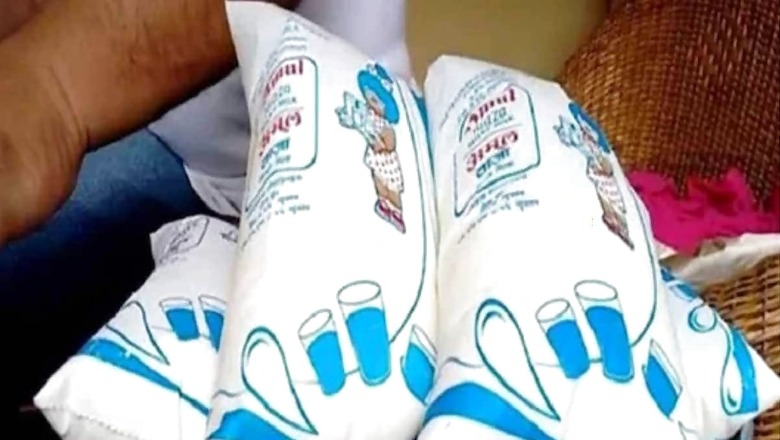
views
It’s not a corporate war, but a conflict among dairy cooperatives of India, after Tamil Nadu became the latest state to raise objections against Gujarat-based Amul’s entry into the state.
Despite a no non-compete clause among cooperatives, which allows them to hold multiple state licences, the conflict with the Gujrat-based milk cooperative is being driven by politics and regional protectionist behaviour that the country has been experiencing over the past four months.
According to the Multi-State Cooperative Societies Act, 2002, any multi-state cooperative society may, by a resolution passed at a general meeting by a majority of members present and voting, promote one or more subsidiary institutions, which may be registered under law, for the furtherance of its stated objectives.
India has 1,525 registered societies from 1986 under the Multiple State Cooperative Societies (MSCS). Of 1,525, Gujarat has 41, and Tamil Nadu has 94, with Maharashtra topping the chart with 585, according to the Ministry of Cooperation.
According to industry experts, 76-year-old Amul has its units across states for years, and with the multi-state cooperative licence, it is not legally incorrect to sell milk and curd in a market like Bengaluru. They further said a “healthy competition” among cooperatives will “not hurt anyone”, instead it will create a choice for consumers and also give boost to both cooperatives and benefit farmers.
A senior economist, who is also a member of a state cooperative federation, said with no non-compete clause, cooperatives source and operate in any state of their choice for which they only need a multi-state cooperative society licence. “Presence of more than one cooperative or business does not harm the consumers or the farmers, instead, it gives them options. It has been the foundation of economic liberalisation or free trade policies. Creating boundaries or barring entry of a cooperative to another state would only affect the ease of doing business for all,” the economist added.
Amul is the most successful milk cooperative in the country, but it does not harm any other organisation, he stressed.
Another industry expert said Amul has over two dozen products, and sells milk at different price points. It has created a different mechanism for itself over a period of time. So, it is a consumer’s choice if they want to buy their products.
What are the Objections against Amul?
The objections from states such as Karnataka and Tamil Nadu against Amul came pouring, especially during the run-up to state assembly elections.
Tamil Nadu chief minister MK Stalin recently wrote to home minister Amit Shah, who also holds the charge of the cooperation ministry, against Amul’s entry into the state’s milk shed area. “It has been a norm in India to let cooperatives thrive without infringing on each other’s milk-shed area. Such cross-procurement goes against the spirit of ‘Operation Flood’ and will exacerbate problems for the consumers given the prevailing milk shortage scenario in the country. This act of AMUL infringes on Aavin’s milk shed area, which has been nurtured in true cooperative spirit over decades. This move by Amul will create unhealthy competition between cooperatives engaged in procuring and marketing milk and milk products,” said CM Stalin.
On a similar note, in April, Karnataka Congress chief and now the deputy chief minister, DK Shivakumar said the state did not need Amul as it had better milk brand Nandini. However, the Amul-Nandini row fizzled out with the assembly election in the state getting over.
India’s Milk Revolution
In 2007, the ‘Father of Milk Revolution’, Verghese Kurien, in an article – ‘India’s Milk Revolution: Investing in India’s Rural Producer Organisations’ – wrote, “As of 2004, milk was processed and marketed by 170 district-level unions, federated into 22 state-level marketing federations. Over the years, brands created by the cooperatives have become known for quality and value. Among the brands that have earned consumer confidence are Amul (Gujarat), Vijaya (Andhra Pradesh), Verka (Punjab), Saras (Rajasthan), Nandini (Karnataka), Milma (Kerala), and Gokul (Kolhapur). Each has become a market leader in its state of origin and also has significant presence in other states. The Gujarat Cooperative Milk Marketing Federation (GCMMF), as mentioned earlier, is the largest food company in India. The success of GCMMF proves that cooperatives can successfully compete with multinational companies.”
Kurien’s article was published by the World Bank in a compilation of ideas called ‘Ending Poverty in South Asia: Ideas That Work’.




















Comments
0 comment